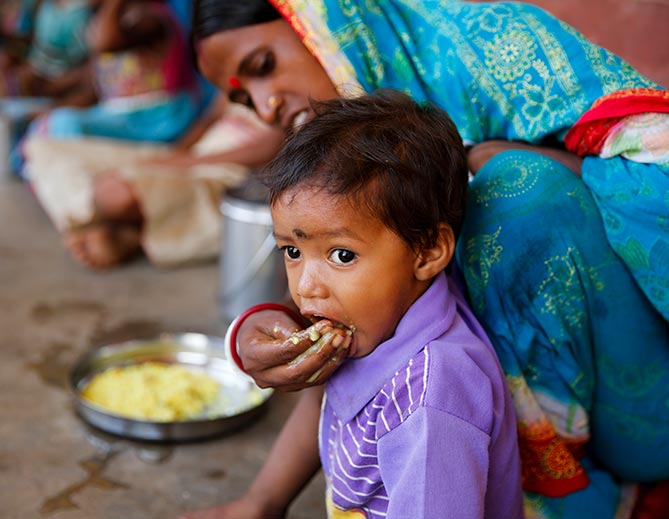Partner with Integrated Child Development Scheme (ICDS) to improve nutrition for all in Bihar.
We engage with health and ICDS programs of the state government to improve the coverage of a range of RMNCHN (Reproductive, Maternal, Newborn Child plus Adolescent Health) interventions at scale, using creative yet replicable ways of improving frontline worker performance, appropriate to the challenging context: sharply defined intervention priorities, better tools, and job aids, skill-building, improved last-mile supervision.
Our Activities
In addition to direct technical assistance at frontline operational levels, the sustainable change required that we catalytically engage the two programs to:
- Improve public health leadership and managerial skills.
- Sharpen focus on outcomes and gain the ability to use data and be driven by evidence and strengthened internal accountability.
- Strengthen core systems within both programs to provide an enabling environment for effective implementation of RMNCHN interventions.
The interventions include:
- Weak Newborn Tracking: Including mechanisms of mentoring, supervising, and supporting FLWs to focus on delivering services and support equitably to all families, robust name-based tracking systems, logistics for ensuring supplies at the last mile.
- ICT/mobile app: The Ministry of Women and Child Development has pushed an ambitious plan to scale up the CAS-ICT-RTM mobile app across the country, beginning with using World Bank assistance funds to provide smartphones to AWW in 8 states (including Bihar), with CARE supporting the rollout in all states.
- VHSND platform: The TSU, under a smaller separate grant, attempted to explore another channel to promote FLW-family interactions, besides home visits, since FLWs could not be persuaded to increase home visits.
- Incremental Learning Approach (ILA): ILA continues to be the main approach for FLW capacity building in the state.
- Weekly CF Practice-together Days (Upari Aahar Abhyas Diwas): TSU nutrition team has been able to conceptualise and get rolled out at scale the new initiative for more frequent contacts between 7 to 9 months to enable establishing of appropriate CF and feeding norm for each child.
Impact
- The proportion of very low birth weight babies identified at the facility receiving KMC at home has gone from 4% to 29% by 2019.
- First-month mortality among identified preterm/ low birth weight babies has reduced from 20.8% to 15.5% by 2019.
- The initiation of complementary feeding has increased from 47% in 2014 to 56% in 2019. The frequency of complementary feeding has increased from 38% in 2014 to 57% in 2019.
- Timely initiation of breastfeeding (within one hour) has gone from 73% in 2014 to 86% in 2019.
- Exclusive breastfeeding among 0-2 months has increased from 68% in 2014 to 80% in 2019.
